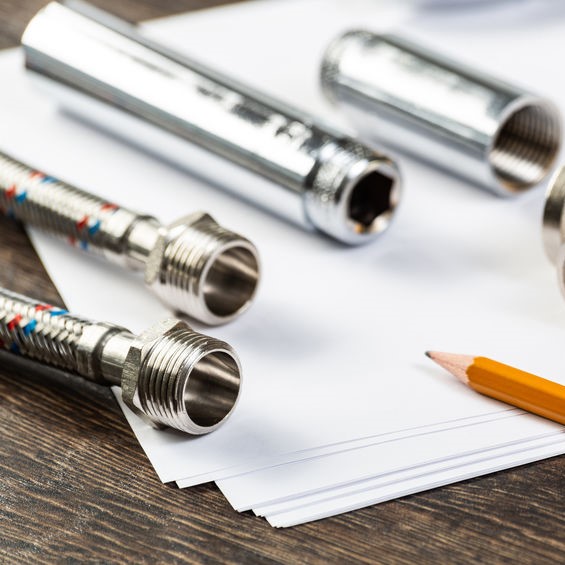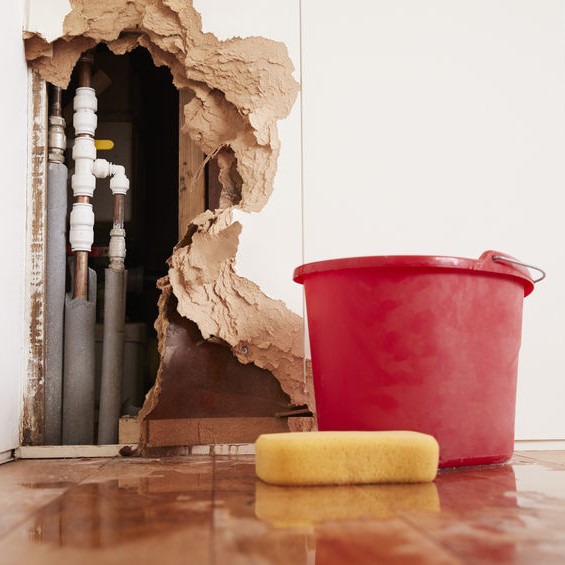
Why is home repiping a good idea?
Before we get into the when of home repiping, let’s define what is home repiping first. Home repiping ca be done one of two ways:
- Completely redo the entire plumbing system with new pipe. This is from the water supply line to the kitchen and all bathrooms.
- Replace a single piece of pipe with a new pipe.
As a homeowner, there are several things you need to do that will keep your home healthy and in good condition. Keeping the HVAC filter changed or cleaned, keeping up with small plumbing drips and leaks, fixing banisters, and more. One thing that most homeowners do not think about as household maintenance is home repiping.
Most people think that home repiping is only done in extreme needs, but there are a few benefits of home repiping that you may not realize you’re missing:
- Pipe Upgrade: Surprise, surprise! The plumbing pipes in your home won’t last forever. After a few decades, they start deteriorating. This typically applies to homes that are over fifty years old because that is when most plumbing pipes start reaching their end-of-life expectancy. With two exceptions: Copper piping can last up to 80 years and galvanized steel pipes can last up to 100 years. However, just because they seem to be good condition doesn’t mean the water quality is still good. Al these years, those pipes have had their share of plumbing problems and probably a good amount of chemical cleaners going through them. Home repiping may be something to think about.
- Replace Materials: If your home was built between the 1970s and the 1990s, the plumbing pipes are probably polybutylene. During that time frame, the concern for using lead pipes was a big issue, and these pipes were an affordable and popular option. Yes, polybutylene pipes aren’t going to endanger you and your family with lead, but they aren’t sturdy either. In fact, they are susceptible to breaking and cracking. Maybe you haven’t had any problems yet, but you can almost put a bet on it that you will. A home repiping now may not be in the budget, but a busted water pipe later won’t be either.
- Color and Water Pressure: If you’re running water in the kitchen and somebody starts a shower, creating a water pressure change, or the water in your has color to it sometimes, you probably need a home repiping job. Plumbing pipes will corrode and being to flake after some time. This will create a rust color to the water or affect the water pressure, sometimes both.
- Leak & Water Damage Protection: There is no need to not do anything because nothing is wrong when it comes to plumbing. If you know your home’s plumbing is older, as we’ve discussed here earlier, then you know that sooner or later, something is going to start to leak, that leak will lead to damage, and then you’re in ankle deep water. Today, one of the best options for home repiping is using PEX, a flexible type of plumbing that contractors and plumbers are in love with. It is durable, sturdy, and best of all from their standpoint, flexible.
What is involved in a whole house repiping project?
Home repiping is a labor intensive job that should be done only by a licensed plumber. This is a general idea of the steps they will take:
- Cover flooring, furniture, and other personal items in plastic
- Mark the areas where pipes are located behind walls with special tools
- Cut those areas out to gain access to the pipes
- Any pipes in the floors will be accessed from the basement or crawl space
- After old pipes are removed, new pipes are installed
- Plumbers and helper will clean up, patch up, retexture, and paint walls
You may want to consider replacing your water heater and upgrade the fixtures to low-flow styles while your home repiping job is taking place.
Should you repipe your house?
So, maybe you’re thinking home repiping sounds like a good deal, but you’re wondering, “When should I repipe my house?”. If you notice any of the following issues with your home’s pluming, this may be the time to schedule home repiping job:
1. Aging and Unsafe Pipes
There are several factors that will affect your home’s plumbing. From basic wear and tear and cold-weather, but the average age that home repiping is good timing is at fifty-years-old or older.
At that age, they’re probably lead pipes which are outlawed for new install now so the sooner you get them out, the healthier your home will be. If you have polybutylene pipes, after a few years, those will break, crack, and begin leaking. What if your home has galvanized steel pipes? They are probably already eroding. If your plumbing clacks, clangs, rattles or makes other noises, time for home repiping!
2. Leaking Pipes
Leaking pipes are not something to ignore. If you know you have a small leak in your plumbing, you’re setting yourself up for disaster if that isn’t fixed soon. If you have had several leaking pipes over the past year, then home repiping is the best way to stop that from happening.
3. Visible Corrosion
If you can see corroded plumbing pipes, they’re discolored, flaking, indented, or rusted, home repiping is the best way to get that fixed. In this case, you may be able to get by with a portion of home repiping instead of the entire plumbing system.
4. Low Water Pressure
Low water pressure can be caused by several factors with the most common being corrosion and sediment buildup. These issues will block water from flowing, put pressure on other areas, causing them to burst.
5. Discolored Water
If the water is coming out of your spigots is brown, red, or yellow, your pipes are full of rust and sediment and home repiping is needed, sooner than later. Why the rush? Because you are bathing, cooking, and consuming this colored water, which is rust and sediments. These can become health hazards.
6. Bad Smell and Taste
If the water in your home is smelling or tasting bad, it is probably because the pipes are in bad condition and you may need a home repiping job. Have a professional plumber inspect your plumbing and advise you accordingly, because it could be something outside of your home causing this issue.
7. Fluctuating Temperature
Fluctuating water temperature could be the water heater going out or it could be the pipes. Either way, you should have a professional plumber check both out and advise you accordingly.
Should I repipe my house with PEX?
This is something that the plumber you choose to work with can advise, but most plumbers prefer working with PEX for several reasons, one being that it is flexible. They are able to work it around in tight corners and spaces. PEX plumbing piping is freeze resistant, doesn’t degrade like copper and is less likely to burst. It is also cheaper, which will make your home repiping a little cheaper too.
How long does it take to repipe a whole house?
This will depend mostly on the size of the house. The average repiping home size is completed in two days. Larger homes may take a full week to complete the home repiping job.

Does insurance cover repiping?
No, probably not, but you should review your homeowner insurance policy or check with your agent. Most insurance companies consider home repiping to be a homeowner responsibility in preventing possible plumbing problems. However, if your home has a water break that floods and damages your home, your insurance will like cover the damage that is done.
Home repiping isn’t something that you will need to do every year. Chances are, you’ll do it once and never need it again. You can relaxing knowing that all of your plumbing is brand new and possible plumbing problems are doing to be avoided. Call 661-201-6016 today for your repiping project in Santa Clarita, CA.

